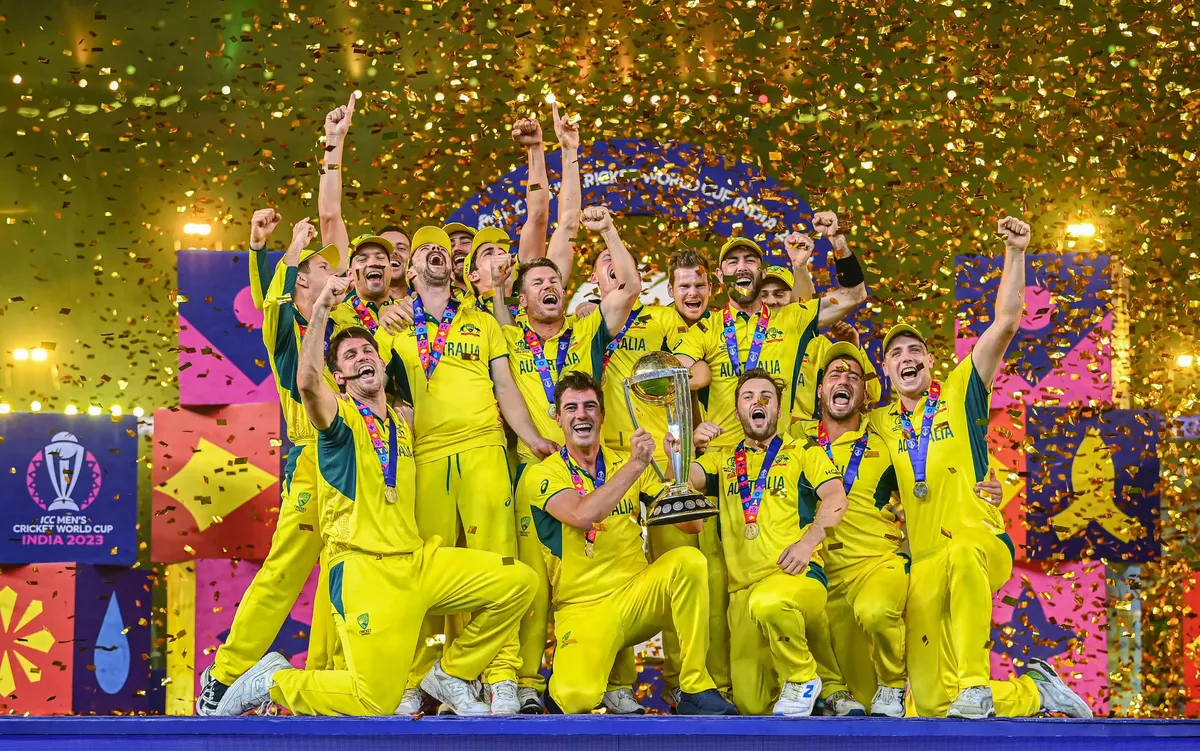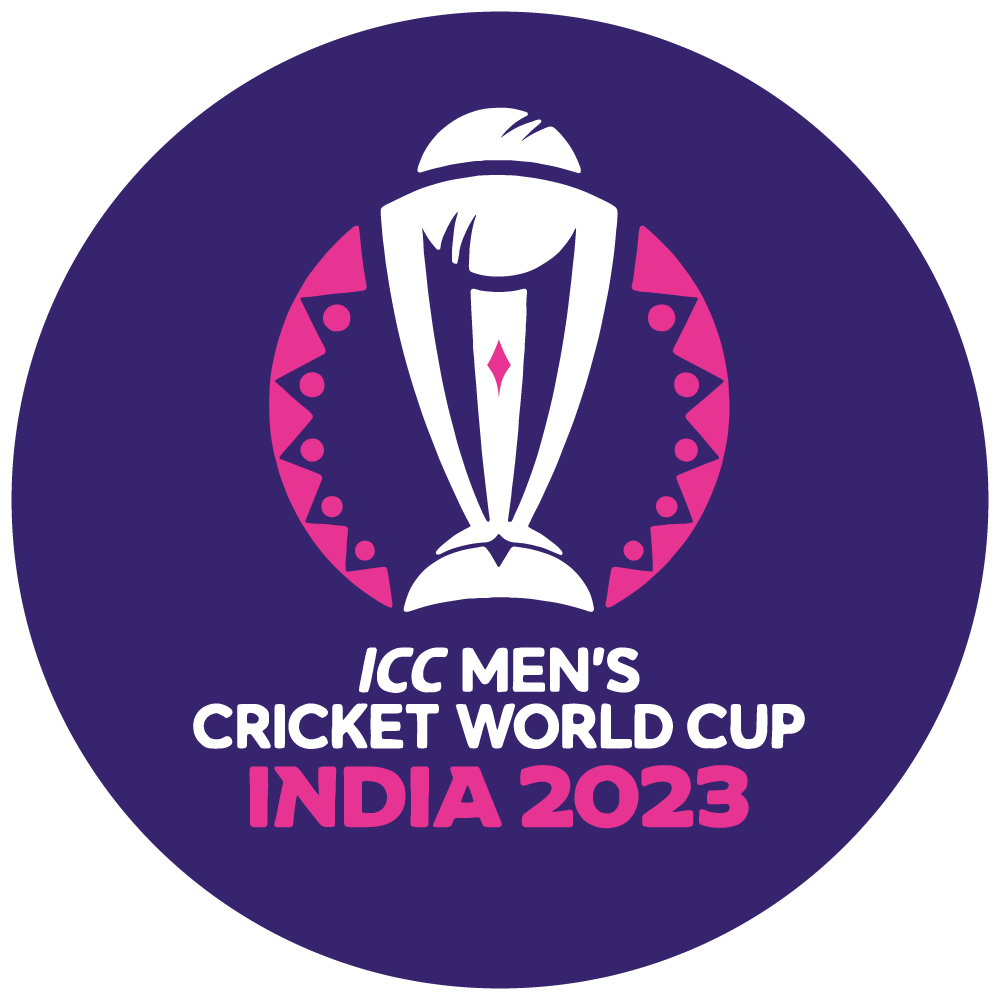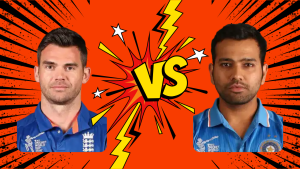
Cricket’s showpiece event – the ICC World Cup – encapsulates competitive and cultural pinnacles every four years through rallying top nations pursuing ODI’s ultimate prize.
From established giants like Australia and India to emerging forces including Afghanistan and Ireland, national pride fuels supreme athletic and tactical pursuits on cricket’s grandest stage.
But transcending game outcomes, the World Cup fosters global camaraderie between diverse cricketing schools celebrating national identities unified through their embrace of cricket’s graceful traditions superseding borders.
Stars shift from rivals to compatriots off-field while respect for opponents resonates throughout contest battles.
As T20 recalibrates future audience dynamics, the 2023 World Cup signifies 50-over’s enduring mass appeal through classic sporting storylines playing out over batches of riveting pool stage journeys before familiar knockouts.
Fresh young talents etch legacies in signature moments alongside faded former heroes summoned for final encores.
Summary & Key Takeaways
Hide
- The ICC Cricket World Cup is the pinnacle of One Day International (ODI) cricket and is organized by the International Cricket Council (ICC) every four years.
- The tournament has been held since 1975, with England hosting the inaugural World Cup. The hosting duties have since rotated among different countries.
- The current structure involves a three-year qualification phase to decide the participating teams, with 10 teams competing in the tournament phase.
- Australia is the most successful team in the tournament, having won it six times, followed by India and the West Indies with two victories each. Kenya's semi-finals achievement in 2003 is the best performance by a non-full-member team.
More than any format, ODI World Cup memories forever linger passed down generations symbolizing national hopes and dreams playing out through cuts, cover drives and emotional triumphs scripted collectively by teams carrying the weight of cricketing cultures on their shoulders.
Introduction to the ICC Cricket World Cup

The ICC Cricket World Cup has evolved significantly since its inception, reflecting broader shifts within the sport and its global reach.
As a quadrennial event, it has become a focal point for showcasing the pinnacle of cricketing talent and competition on the international stage.
The tournament’s history not only chronicles the changing formats and expanding participation but also underscores its importance as a barometer for the sport’s development and popularity worldwide.
History and Evolution of the Tournament
Several iterations of the ICC Cricket World Cup since its inception in 1975 highlight the tournament’s dynamic evolution and its growing stature in the realm of international sports.
The cricket world cup has undergone significant changes, reflecting the sport’s increasing popularity and the need for a more inclusive and competitive format.
From the initial eight-team event to the current expansive qualifiers and final tournament structure, the ICC World Cup has adapted to the demands of a global audience and the spirit of cricketing excellence.
| Year |
Host |
Winner |
Score |
Runner-up |
Score |
Result |
| 1975 |
England |
West Indies |
291–8 |
Australia |
274 |
West Indies won by 17 runs |
| 1979 |
England |
West Indies |
286–9 |
England |
194 |
West Indies won by 92 runs |
| 1983 |
England |
India |
183 |
West Indies |
140 |
India won by 43 runs |
| 1987 |
India and Pakistan |
Australia |
253–5 |
England |
246–8 |
Australia won by 7 runs |
| 1992 |
Australia and New Zealand |
Pakistan |
249–6 |
England |
227 |
Pakistan won by 22 runs |
| 1996 |
Pakistan and India |
Sri Lanka |
245–3 |
Australia |
241 |
Sri Lanka won by 7 wickets |
| 1999 |
England |
Australia |
133–2 |
Pakistan |
132 |
Australia won by 8 wickets |
| 2003 |
South Africa |
Australia |
359–2 |
India |
234 |
Australia won by 125 runs |
| 2007 |
West Indies |
Australia |
281–4 |
Sri Lanka |
215–8 |
Australia won by 53 runs |
| 2011 |
India and Bangladesh |
India |
277–4 |
Sri Lanka |
274–6 |
India won by 6 wickets |
| 2015 |
Australia and New Zealand |
Australia |
186–3 |
New Zealand |
183 |
Australia won by 7 wickets |
| 2019 |
England and Wales |
England |
241 |
New Zealand |
241–8 |
The Match tied after regular play and super over and
England won on a boundary count |
| 2023 |
India |
Australia |
241-4 |
India |
240 |
Australia won by 6 wickets |
The history and evolution of the tournament are marked by memorable matches, exceptional athleticism, and a world cup winners list that inspires newer cricketing nations.
This transformative journey underscores a pursuit of freedom—freedom to evolve, compete, and celebrate the spirit of cricket on a world stage.
The Significance of the Cricket World Cup in International Sports
Amidst the pantheon of international sports, the ICC Cricket World Cup stands as a colossal tournament, drawing unparalleled global viewership and showcasing the pinnacle of cricketing talent.
As the summit of the ODI World Cup, it not only symbolizes the quest for cricketing supremacy but also reflects a unifying force, transcending cultural and national boundaries.
The tournament’s legacy, storied with dramatic finishes and heroic individual performances, is etched into the cricket world cup winners list, a testament to the transformative power of competitive sport.
The World Cup cricket phenomenon is more than a series of matches; it is a celebration of excellence, a global platform where legends are born, and an enduring chapter in the annals of international sportsmanship.
Format and Structure of the Cricket World Cup
The ICC Cricket World Cup’s format has evolved to optimize competitive balance and global engagement within the One Day International (ODI) framework.
The quadrennial tournament’s rigorous qualification process ensures that only the most proficient teams reach the main event, reflecting the ICC’s commitment to maintaining a high standard of cricket.
The recent expansion to a 14-team structure for the 2027 edition signals a strategic move to foster inclusivity, while preserving the intensity and prestige associated with the World Cup.
Understanding the One Day International (ODI) Format
Delving into the One Day International (ODI) format, it is essential to comprehend the structure and rules that govern the ICC Cricket World Cup.
The ODI is a form of limited-overs cricket, consisting of 50 overs per side, with each over comprising six deliveries. This format demands strategic acumen, balancing aggressive play with calculated risk management to maximize the allocation of limited resources—overs and wickets.
The World Cup’s format, historically evolving, has settled into a robust competitive structure ensuring a comprehensive test of skill and endurance. The tournament involves a round-robin group stage followed by knockout rounds, which accentuates the significance of consistent performance.
The ODI format’s meticulous design encapsulates cricket’s complexity, offering a platform where strategy and skill converge to crown the world’s premier cricket nation.
Qualification Process and Tournament Phases
The ICC Cricket World Cup’s evolving format reflects the dynamic nature of the sport and its governance, with structural changes often mirroring the game’s growing global footprint.
Historical shifts have seen the tournament expand and contract in terms of participating teams, with the upcoming 2027 World Cup set to feature an increase from 10 to 14 teams.
This expansion is indicative of the ICC’s commitment to fostering inclusivity and competitiveness, ensuring a broader representation of cricketing nations on the world stage.
Changes in Format Through the Years
Over the years, the ICC Cricket World Cup has undergone several transformations in its format and structure, reflecting the evolving landscape of international cricket.
Adjustments have been made to the qualification process and tournament phases to ensure a competitive balance, accommodate emerging teams, and maintain the championship’s prestige.
These changes aim to preserve the tournament’s integrity while fostering inclusivity and diversity in the sport.
Upcoming Format Changes in Future Tournaments
In 2027, the ICC Men’s Cricket World Cup will expand to include fourteen teams, altering the tournament’s structure and qualification process.
This strategic enlargement is a nod to inclusivity and competitive diversity, promising a broader international representation.
The reimagined format is anticipated to invigorate the tournament, enhancing its global appeal and extending the narrative of cricket’s evolution.
Within the framework of dynamic, international sportsmanship.
Notable Cricket World Cup Tournaments
The inaugural 1975 Cricket World Cup not only laid the foundation for the quadrennial event but also set a precedent for the grandeur and competitiveness of international cricket.
Memorable finals, such as the 1999 Australia-Pakistan clash and the 2011 India-Sri Lanka showdown, have etched themselves into the annals of cricketing history, showcasing the sport’s dramatic evolution.
Historic matches throughout the tournament’s iterations have often turned players into legends and have had lasting impacts on the game’s tactics and global following.
Inaugural World Cup – A Look Back at 1975
Delving into the annals of cricket history, the inaugural ICC Cricket World Cup in 1975 marked the beginning of a new era in the sport’s competitive landscape.
This seminal event laid the groundwork for what has become a quadrennial celebration of cricket, bringing together nations in a spirit of sportsmanship and competition.
Key historical points include:
- Eight Nations Competed: England, Australia, West Indies, Pakistan, India, New Zealand, Sri Lanka, and East Africa made up the pioneering teams.
- West Indies‘ Triumph : Clive Lloyd’s magnificent century led the West Indies to their first World Cup victory.
- 60-Over Matches: Games were played over 60 overs per side, unlike the contemporary 50-over format.
- Limited Overs Revolution: The 1975 World Cup popularized the limited overs format, showcasing a faster-paced, more accessible version of the game.
Memorable World Cup Finals and Historic Matches
The ICC Cricket World Cup has been a stage for numerous record-breaking performances and significant milestones that have shaped the history of the sport.
Each tournament has been punctuated by matches that not only captivated audiences worldwide but also set new standards of excellence in cricket.
Analyzing these historic contests reveals patterns of dominance, moments of individual brilliance, and the evolving strategies that have influenced the modern game.
Record-Breaking Performances and Milestones
Historically, the ICC Cricket World Cup has consistently been a stage for record-breaking performances and the setting of numerous milestones in the sport’s history.
- Sachin Tendulkar‘s 2,278 runs as the all-time leading scorer.
- Australia’s unprecedented five titles, a testament to dominance.
- Martin Guptill‘s record-breaking 237* in a single match.
- The monumental 417-6 by Australia in 2015, the highest team score.
Teams and Players in Spotlight
Within the annals of the ICC Cricket World Cup, certain teams have established themselves as formidable forces, with Australia’s record six titles underscoring their dominance in the tournament’s history.
The impact of iconic players, such as Sachin Tendulkar’s prolific run-scoring and Glenn McGrath‘s surgical precision with the ball, has often been the catalyst for their teams’ triumphs on this global stage.
Analysis of past tournaments reveals a pattern where individual brilliance and strategic team dynamics converge to elevate nations to World Cup glory.
Dominant Teams in World Cup History
Australia’s preeminence in the ICC Cricket World Cup is underscored by a record six titles, a testament to the country’s sustained excellence in one-day international cricket.
This dominance has been facilitated by the emergence of legendary players, such as Ricky Ponting and Glenn McGrath, who have left indelible marks on the tournament’s history.
Analyzing Australia’s strategic approach to World Cup campaigns reveals a consistent emphasis on aggressive batting, disciplined bowling, and dynamic fielding, which has set a benchmark for success in the competition.
Australia’s Legacy in the World Cup

Few nations have dominated the ICC Cricket World Cup as impressively as Australia, with six titles to their name since the tournament’s inception.
- Seven Finals Appearances: Australia has reached the final match an extraordinary seven times.
- Six Championships: Their six titles showcase a legacy of excellence.
- Two Consecutive Undefeated Tournaments: In 2003 and 2007, they won without losing a single match.
- Consistent Top-Performers: Semi-finalists or better in all but three editions.
This sustained success sets the stage for discussing iconic players and their impact on the World Cup.
Iconic Players and Their Impact on the World Cup
Iconic players have often been the catalysts for their teams’ successes at the ICC Cricket World Cup, transcending the role of mere participants to become symbols of cricketing excellence.
Their performances not only inspire their teammates but also captivate the global audience, often leading to the rise of emerging teams and the celebration of underdog stories.
An examination of these athletes’ contributions reveals the profound impact individual brilliance can have on the World Cup’s competitive landscape, shaping the tournament’s history and its most memorable moments.
Emerging Teams and Underdog Stories
We cannot overlook the inspiring sagas of emerging teams and underdog players who have left an indelible mark on the ICC Cricket World Cup’s rich history.
- Kenya’s 2003 semi-final run, defying expectations.
- Ireland’s stunning upset against England in 2011.
- Afghanistan‘s resilient ascension to cricket’s high table.
- Bangladesh’s steady rise from minnows to competitors.
These narratives exemplify the transformative power of sport, showcasing cricket’s dynamic and inclusive spirit.
Venues and Hosting Nations
The selection of venues and host nations for the ICC Cricket World Cup has significant implications for both the tournament’s structure and its broader influence on the host countries.
Host nations often experience a surge in economic activity. Infrastructure development and tourism associated with the event can foster substantial financial benefits. This influx of money can have a positive impact on the local economy, creating jobs and stimulating growth in various sectors.
Moreover, hosting the World Cup has a profound cultural impact on the host country. It serves to enhance the country’s global sporting profile and can lead to a lasting legacy of increased participation and interest in cricket.
The tournament provides an opportunity for the host nation to showcase its culture, traditions, and hospitality to a global audience.
This exposure can generate a sense of national pride and unity, fostering a positive atmosphere both during and after the event.
In addition, hosting the World Cup can have long-term benefits for the sport of cricket in the host country. The increased interest and participation generated by the tournament can lead to the development of grassroots programs, improved training facilities, and enhanced support for talented young players.
This investment in cricket infrastructure can create a legacy that extends far beyond the tournament itself, leaving a lasting impact on the sport in the host nation.
Role of Host Nations in Shaping the Tournament
Host nations exert a profound influence on the ICC Cricket World Cup, not only by providing the settings but also by shaping the very atmosphere and infrastructure that support the tournament’s success.
The selection of venues is critical, as stadiums with rich histories and modern facilities enhance the global stature of the event and leave an indelible mark on the sport’s legacy.
Consequently, the choice of hosting nations and their venues is a strategic decision that reflects the ICC’s vision for the tournament’s evolution and its impact on cricket worldwide.
Memorable Venues and Their Histories
Over the years, iconic stadiums across various nations have etched their names into Cricket World Cup history, not only by providing the stage for memorable matches but also by influencing the cultural and logistical aspects of the tournament.
- Lord’s Cricket Ground, England – The enduring ‘Home of Cricket.
- Eden Gardens, India – A coliseum of passionate fandom.
- Melbourne Cricket Ground, Australia – A bastion of historic finals.
- The Wanderers Stadium, South Africa – Architect of modernity in cricket.
These venues have become synonymous with cricket’s grandeur, each narrating a unique story of cricketing triumphs and tribulations.
Transitioning to the next theme, it’s essential to explore how hosting the World Cup reshapes the economic and cultural fabric of these nations.
Economic and Cultural Impact on Host Countries
Recognizing the ICC Cricket World Cup as a significant catalyst for economic growth, host countries often experience a surge in tourism and infrastructure development, alongside an elevation of their cultural profile on the international stage.
The tournament’s arrival heralds a period of intense economic activity, with the local hospitality sector witnessing an influx of international visitors.
Investment in stadiums and transport networks enhances long-term economic prospects and civic pride. Moreover, the global media exposure propels the host nation’s culture and heritage into the limelight, fostering a sense of unity and national identity.
The event’s economic ripples extend beyond the immediate spectacle, seeding future tourism and international interest.
Thus, the World Cup’s legacy is multifaceted, leaving enduring imprints on the host country’s economic and cultural landscape.
Fans and Cultural Significance
The ICC Cricket World Cup garners immense global viewership, with fan engagement peaking as nations rally behind their teams, illustrating the event’s deep cultural resonance across different continents.
This quadrennial event not only shapes the international cricket landscape but also significantly influences the cultural fabric of cricketing nations, often becoming a source of national pride and identity.
The fervor and festivities accompanying the World Cup reflect its stature as a cultural phenomenon, transcending the boundaries of sport to become a unifying global celebration.
Fan Engagement and Global Viewership Trends
Millions of cricket enthusiasts engage with the ICC Cricket World Cup, making it a tournament with immense cultural significance and a global viewership that spans various continents. The following points highlight crucial trends and insights regarding fan engagement and viewership:
- Diverse Audience Reach: The tournament garners attention from fans across age groups, with a notable increase in engagement from younger demographics through digital platforms.
- Innovative Broadcasting: Advances in broadcasting technology have expanded viewership, offering immersive experiences via live streaming and interactive content.
- Social Media Influence: Platforms like Twitter and Facebook have revolutionized fan engagement, facilitating real-time discussions, fan theories, and direct interaction with players.
- Cultural Celebrations: Cricket World Cup events become cultural phenomena in participating countries, with festivities and communal viewings reinforcing the sport’s cultural impact.
These elements collectively underscore the World Cup’s role in shaping a unifying global sporting culture.
The World Cup’s Influence on Cricket Culture Worldwide
Cricket’s pinnacle event, the ICC Cricket World Cup, significantly influences cultural norms and fan behaviors across the globe. It transcends mere sport, embedding itself into the cultural tapestry of nations.
The quadrennial tournament fosters a unique camaraderie and rivalry that resonate with millions, creating a cultural phenomenon that unites diverse populations in celebration and competition.
| Aspect |
Impact on Fans |
Cultural Significance |
| National Pride |
Heightened Engagement |
Identity Solidification |
| Cricket Festivities |
Increased Participation |
Cultural Festivity |
| Hero Creation |
Personal Inspiration |
Mythology Building |
This global engagement catalyzes a deep analytical appreciation of the game, sparking conversations that are both informed and articulate.
The World Cup serves as a stage for expressing freedom, as fans from different countries come together to support their teams. The ensuing media coverage and broadcasting further amplify this cultural impact.
Media Coverage and Broadcasting
The media coverage of the ICC Cricket World Cup has undergone significant transformation since the inaugural tournament, reflecting broader technological advancements and changing consumer media consumption habits.
The proliferation of digital media platforms has played a pivotal role in expanding the global reach of the event, facilitating real-time engagement and content distribution to a diverse international audience.
This evolution has not only enriched the viewer experience through enhanced broadcast quality and accessibility but has also opened new avenues for fan interaction and commercial opportunities.
Evolution of Media Coverage Over the Years
Over the years, media coverage of the ICC Cricket World Cup has expanded significantly, evolving from limited television broadcasts to comprehensive global digital streaming. The progression can be highlighted through the following aspects:
- Broadcasting Reach: From select national coverage to a vast network covering over 200 countries.
- Technological Advancements: Transition from standard definition to high-definition and now ultra-high-definition broadcasts.
- Interactive Features: Introduction of multi-angle views, player tracking, and predictive analytics for an enhanced viewer experience.
- Digital Platforms: Shift from traditional media to a proliferation of digital platforms offering live streaming, on-demand content, and social media integration.
These advancements have not only democratized viewership but also enriched the fan experience.
As we delve further into the digital age, the next section will explore the role of digital media in expanding the tournament’s reach.
The Role of Digital Media in Expanding Reach
As digital media has proliferated, it has played a pivotal role in propelling the ICC Cricket World Cup to unprecedented global viewership and engagement.
The advent of streaming services, social media platforms, and dedicated cricket apps has democratized access to the tournament, bypassing traditional geographic and economic barriers.
| Platform |
Impact |
Emotional Appeal |
| Streaming Services |
Global Accessibility |
Unites Diverse Fans |
| Social Media |
Real-Time Engagement |
Amplifies Shared Passion |
| Mobile Apps |
Personalized Experience |
Fosters Intimacy with the Game |
| Virtual Reality |
Immersive Viewing |
Heightens the Thrill of Cricket |
| E-Sports |
Interactive Competitions |
Strengthens Fan Communities |
This analytical approach to media coverage ensures that enthusiasts have the freedom to enjoy the game on their own terms, fostering a sense of community and belonging, irrespective of physical location.
As we delve deeper into the influence of digital media, it’s crucial to also acknowledge the controversies and challenges it brings to the fore.
Controversies and Challenges
Throughout its history, the ICC Cricket World Cup has encountered a multitude of controversies, ranging from match-fixing scandals to political boycotts that have marred the sport’s reputation.
Challenges such as ensuring robust security measures and upholding the principles of fair play are critical to maintaining the integrity of the tournament.
Addressing these issues is paramount, as they not only affect the immediate stakeholders but also the global perception of cricket as a fair and competitive sport.
Notable Controversies in World Cup History
The ICC Cricket World Cup has faced several controversies and challenges that have sparked debates and often overshadowed the sport’s pinnacle moments.
These incidents have not only tested the integrity of the game but also brought to light the complexities of managing an international sporting event.
- Rain Rule Fiasco (1992): The controversial rain rule altered match outcomes, most infamously in the semi-final between England and South Africa.
- Tiebreaker Turmoil (1999): The semi-final between Australia and South Africa ended in a dramatic tie, leading to questions about tiebreaker rules.
- Bob Woolmer’s Death (2007): The mysterious death of Pakistan’s coach during the tournament sparked widespread speculation and an investigation.
- Umpiring Errors (2015): Criticism arose from several umpiring mistakes, prompting calls for improvements in the use of technology.
Addressing Challenges: Security, Fair Play, and More
In response to historical controversies, the ICC has implemented stringent security protocols and rigorous fair play standards to uphold the integrity of the Cricket World Cup.
These measures are designed to thwart potential threats, whether they be physical in nature or aimed at compromising the competition’s ethical foundation.
The ICC’s vigilance in enforcing anti-corruption guidelines reflects a commitment to transparency and accountability. This proactive stance extends to on-field conduct, with the introduction of the Decision Review System (DRS) enhancing the accuracy of umpiring decisions, thus reinforcing fairness.
Moreover, the ICC continually revises its code of conduct to address emerging challenges, ensuring that the spirit of cricket remains the guiding principle throughout the tournament, preserving the freedom of the sport from undue influence and maintaining its esteemed reputation on the global stage.
Future of the Cricket World Cup
As the ICC Cricket World Cup evolves, it is anticipated that innovations and technological advancements will play a significant role in shaping future tournaments.
The ICC’s strategic vision and policy decisions will be instrumental in determining the format, participation, and global reach of the World Cup, influencing its accessibility and appeal to a broader audience.
The upcoming expansions to team numbers and potential adoption of emerging technologies underscore a commitment to both tradition and progress in the sport’s premier event.
Innovations and Expected Developments in Coming Tournaments
Regarding the future of the ICC Cricket World Cup, anticipated innovations and developments are set to transform the tournament experience for players and fans alike.
The following list outlines key expected advancements:
- Expansion of Teams: Increasing the number of participating teams to foster global competition and inclusion.
- Technological Enhancements: Incorporation of advanced analytics and real-time data to refine strategies and enhance viewer engagement.
- Fan Interaction: Novel digital platforms for improved fan experiences, including virtual reality and gamification elements.
- Sustainability Initiatives: Emphasis on eco-friendly practices to minimize the environmental impact of hosting large-scale events.
These developments reflect a strategic vision that balances tradition with modernity, ensuring the World Cup remains a dynamic celebration of cricket’s enduring appeal.
The Role of ICC in Shaping the Future of World Cup
Guiding the evolution of the ICC Cricket World Cup, the International Cricket Council plays a pivotal role in implementing reforms and innovations to elevate the sport’s global stature.
The ICC not only governs the framework and logistics of this prestigious tournament but also shapes the future by expanding its reach and inclusivity.
Strategic decisions about format changes, participating nations, and technological advancements are made with the goal of enhancing competitive balance and viewership.
| Aspect |
Emotion Evoked |
| Inclusivity |
Hope |
| Technological Advances |
Excitement |
| Competitive Balance |
Respect |
| Global Reach |
Pride |
| Historic Moments |
Nostalgia |
The ICC’s stewardship ensures the World Cup remains a beacon of freedom, where nations unite in a shared passion for cricket.
The decisions made today are critical for tomorrow’s legacy, which segues into a reflection on the tournament’s enduring global impact.
Summary of the World Cup’s Legacy and Its Global Impact
The ICC Cricket World Cup has established itself as a quintessential event with a profound legacy, influencing billions of fans worldwide and catalyzing the growth of the sport.
Its global impact is multifaceted, with the following critical aspects:
- Cultural Integration: The World Cup serves as a melting pot for diverse cultures, fostering a sense of unity and shared excitement across various nations.
- Economic Boost: Host countries often experience a surge in economic activity, with tourism, infrastructure development, and job creation linked to the event.
- Globalization of Cricket: The tournament has played a pivotal role in popularizing cricket beyond traditional strongholds, inspiring new markets and audiences.
- Technological Advancements: Each edition of the World Cup has driven innovation in broadcasting and analytics, enhancing the viewer experience and the sport’s strategic depth.
The World Cup’s legacy transcends mere statistics and records; it embodies the spirit of competition and fair play. It has continually adapted to evolving global dynamics, while also maintaining the tradition and prestige that make it an enduring spectacle.
For nations, it offers an opportunity to showcase their prowess and for individuals, a platform to achieve greatness. With every iteration, it reinforces cricket’s position as a sport that champions excellence and inclusivity.
For the closing words, the ICC Men’s Cricket World Cup epitomizes the zenith of ODI cricket, showcasing a confluence of skill, strategy, and international camaraderie.
It not only determines the global champion but also serves as a catalyst for cultural exchange and unity.
The tournament’s enduring legacy and expanding global footprint underscore its significance in the sporting world, affirming cricket’s ability to transcend boundaries and engender a universal passion for the game.
Frequently Asked Questions (FAQs)
Who won most World Cup in cricket?
Australia has won the most Cricket World Cups, with a total of six titles as of ICC Cricket World Cup 2023.
Which country will host the 2027 World Cup?
The 2027 Cricket World Cup will be hosted jointly by South Africa, Zimbabwe, and Namibia.
Who won the 2011 World Cup final?
India won the 2011 ICC Cricket World Cup final.
Who won the 2015 World Cup final?
Australia won the 2015 ICC Cricket World Cup final.
Who won the 2023 World Cup final?
Australia won the 2023 ICC Cricket World Cup final.
Who held the 2011 World Cup?
The 2011 ICC Cricket World Cup was co-hosted by India, Sri Lanka, and Bangladesh.
Who won the first World Cup?
The West Indies won the first ever Cricket World Cup in 1975.



















